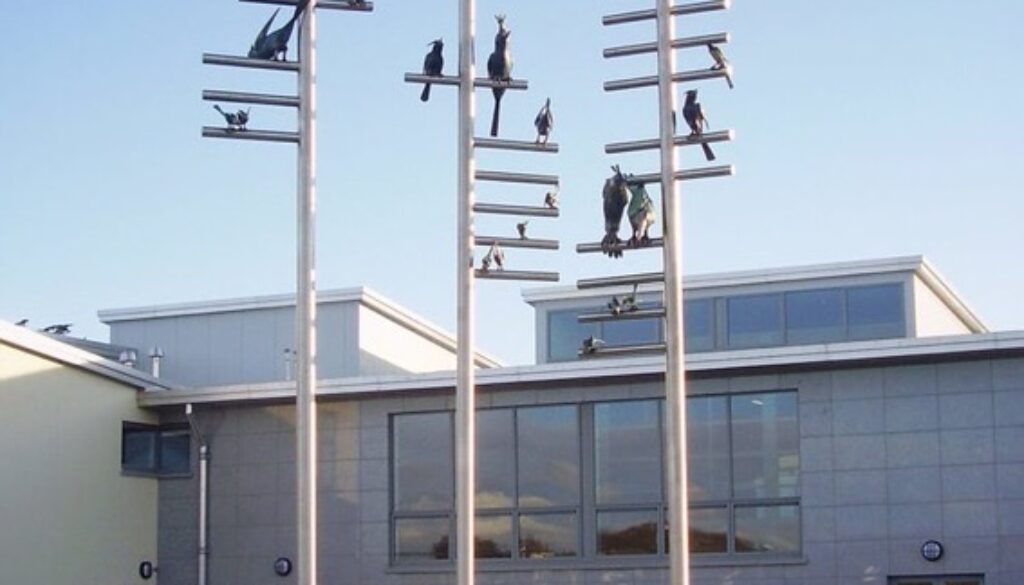Is it Ogham Or Ogam? And In Any Case, How Do You Say It?

http://www.fidelmamassey.com/large-works
Many of you wrote in appreciation (or simply in humor) about Hans de Wolf’s column about the slippery 25th Dutch letter, which might be an ij digraph. Or not.
Well, it’s time to raise the stakes, and I wouldn’t dare venture into this territory (especially as a bloody Englishman) without the guidance of David Stifter, the Irish Principal Investigator of a collaborative research project called, and I am copying this carefully from their website, The OG(H)AM Project: “harnessing digital technologies to transform understanding of ogham writing, from the 4th century to the 21st.”
Right away we sense the Dutch digraph may have met its match. Clearly, the issue of the name of the Irish script is complex enough to warrant a parenthesis, a rare sighting in official names of academic research projects. Ogham, the organization’s name is asking, or Ogam? What the H?
It gets tricker still: there’s not only a spelling issue (manifest in a punctuation symptom) but a capitalization issue. There are actually four legitimate possibilities: Ogham, Ogam, ogham and ogam. The Irish are leading the Dutch 4-1.
Well. It turns out that what we’re seeing is a problem older than spelling itself. (Not that old, when you think of it. Widespread consistent spelling is only a little over a century old even in Europe and the Americas.)
Ogam, David informs us, keeping a level head, is the spelling in Old Irish, though ogom and ogum can be found. So far, so good.
On the other hand, in Modern Irish and Scottish Gaelic orthography the spelling is ogham. Just when you thought it was safe….
Okay, well should it be Ogam or Ogham with a capital letter or ogam or ogham in lower case? Depends on whether you think of it as a national script deserving of being thought of as a proper noun (e.g. French, Manx) or a generic word describing a form of writing (e.g. runes, hieroglyphics). Either is acceptable.
Well, you conclude, this is all quite relaxing. This Og(h)am feller is clearly an easygoing sort, partial to a drop of Jameson’s and agreeable to one and all unless you come up against him in an All-Ireland final with a hurley in his hand.
Not quite. The line has to be drawn somewhere. You can capitalize and spell however you like, but whatever you do, don’t pronounce it “ogg-um.”
The G, he tells us, is either silent, or “pronounced like G in Spanish or in Dutch, i.e. almost like English H, but a bit raspier (almost as if you were gargling).”
The hard G, David says firmly, “is just plainly wrong. At no period of the Gaelic languages ever did authentic speakers pronounce it so.”
You heard it here last.
I am entirely indebted to @NdeFaoite for directing me to this information, though not for the jokes, in which she is blameless.
This post is sponsored by our friends at Typotheque, Rosetta, and Solidarity of Unbridled Labour.




